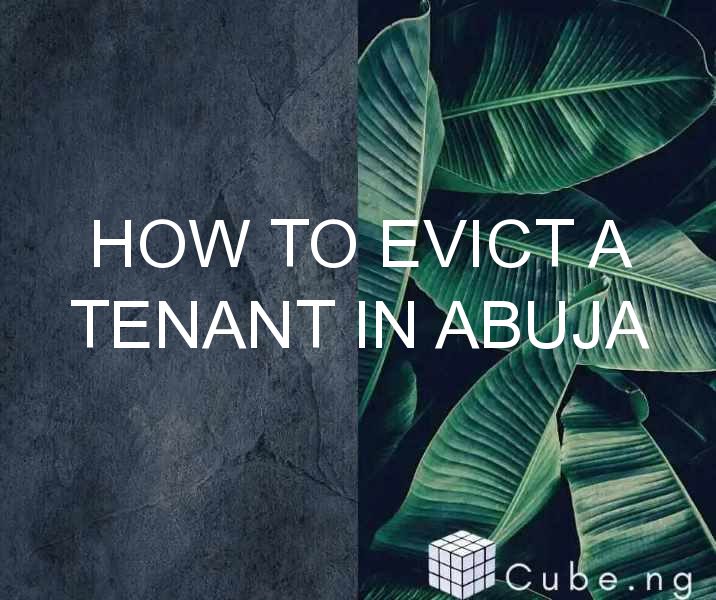Table of Contents
How to Evict a Tenant in Abuja: A Comprehensive Guide
As a landlord, there may come a time when you need to evict a tenant. Whether it's due to non-payment of rent, breach of agreement, or other reasons, it's important to know the proper procedure for evicting a tenant in Abuja. This guide will provide you with all the information you need to legally and effectively evict a tenant in Abuja.
Understanding the Legal Framework for Evictions in Abuja
In Abuja, the legal framework for evictions is governed by the Recovery of Premises Act, 1990. This law stipulates that a landlord must obtain a court order before evicting a tenant. The court order must be obtained from a magistrate court in the jurisdiction where the property is located.
Grounds for Eviction
Under the Recovery of Premises Act, a landlord can only evict a tenant on specific grounds. These grounds include:
- Non-payment of rent
- Breach of tenancy agreement
- Nuisance or annoyance
- Illegal use of the premises
- Subletting without the landlord's consent
- Refusal to give up possession of the premises after the expiration of the tenancy agreement
Serving the Tenant with a Notice to Quit
Before filing a suit for eviction, a landlord must serve the tenant with a notice to quit. This notice must be in writing and must specify the grounds for the eviction. The notice must also give the tenant a specific period to vacate the premises.
The period of notice required depends on the grounds for eviction. For non-payment of rent, the notice period is seven days. For other grounds, the notice period is 30 days.
Filing a Suit for Eviction
If the tenant fails to vacate the premises after the expiration of the notice period, the landlord can file a suit for eviction with the magistrate court. The suit must be filed in the jurisdiction where the property is located.
The landlord must include all relevant documents, such as the tenancy agreement, notice to quit, and any other evidence in support of the eviction. The court will then set a date for the hearing of the case.
Attending the Hearing
Both the landlord and the tenant must attend the hearing of the case. The court will listen to both parties and make a decision based on the evidence presented. If the court finds in favor of the landlord, it will issue a writ of possession, which authorizes the landlord to take possession of the property.
Executing the Writ of Possession
Once the landlord obtains a writ of possession, they must execute it by serving it on the tenant. The writ of possession gives the tenant a final period to vacate the premises. If the tenant fails to vacate the premises within the specified period, the landlord can obtain a warrant of possession from the court.
The warrant of possession authorizes the police to assist the landlord in taking possession of the premises. The landlord must provide the police with a copy of the writ of possession and the warrant of possession before they can enter the premises.
Conclusion
Evicting a tenant in Abuja can be a complex and time-consuming process. However, by following the proper legal procedure, landlords can ensure that they are able to evict a tenant in a legal and effective manner. If you are a landlord in Abuja and need to evict a tenant, it's important to consult with a lawyer who specializes in landlord-tenant law.
FAQs
-
Can a landlord evict a tenant without a court order in Abuja?
No, a landlord must obtain a court order before evicting a tenant in Abuja. -
How long does a landlord have to wait before filing a suit for eviction?
The landlord must serve the tenant with a notice to quit and wait for the specified period before filing a suit for eviction. -
What happens if the tenant fails to attend the hearing?
If the tenant fails to attend the hearing, the court may proceed with the case in their absence. -
Can a tenant appeal a court's decision to evict them?
Yes, a tenant can appeal a court's decision to evict them within a specified period. -
Can a landlord use self-help to evict a tenant in Abuja?
No, a landlord cannot use self-help to evict a tenant in Abuja. They must follow the proper legal procedure by obtaining a court order.




